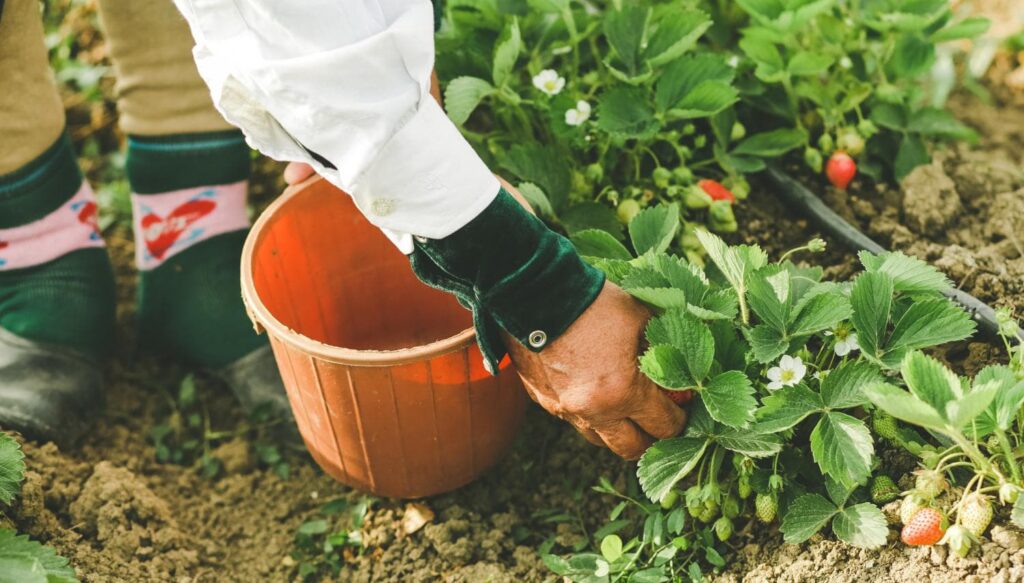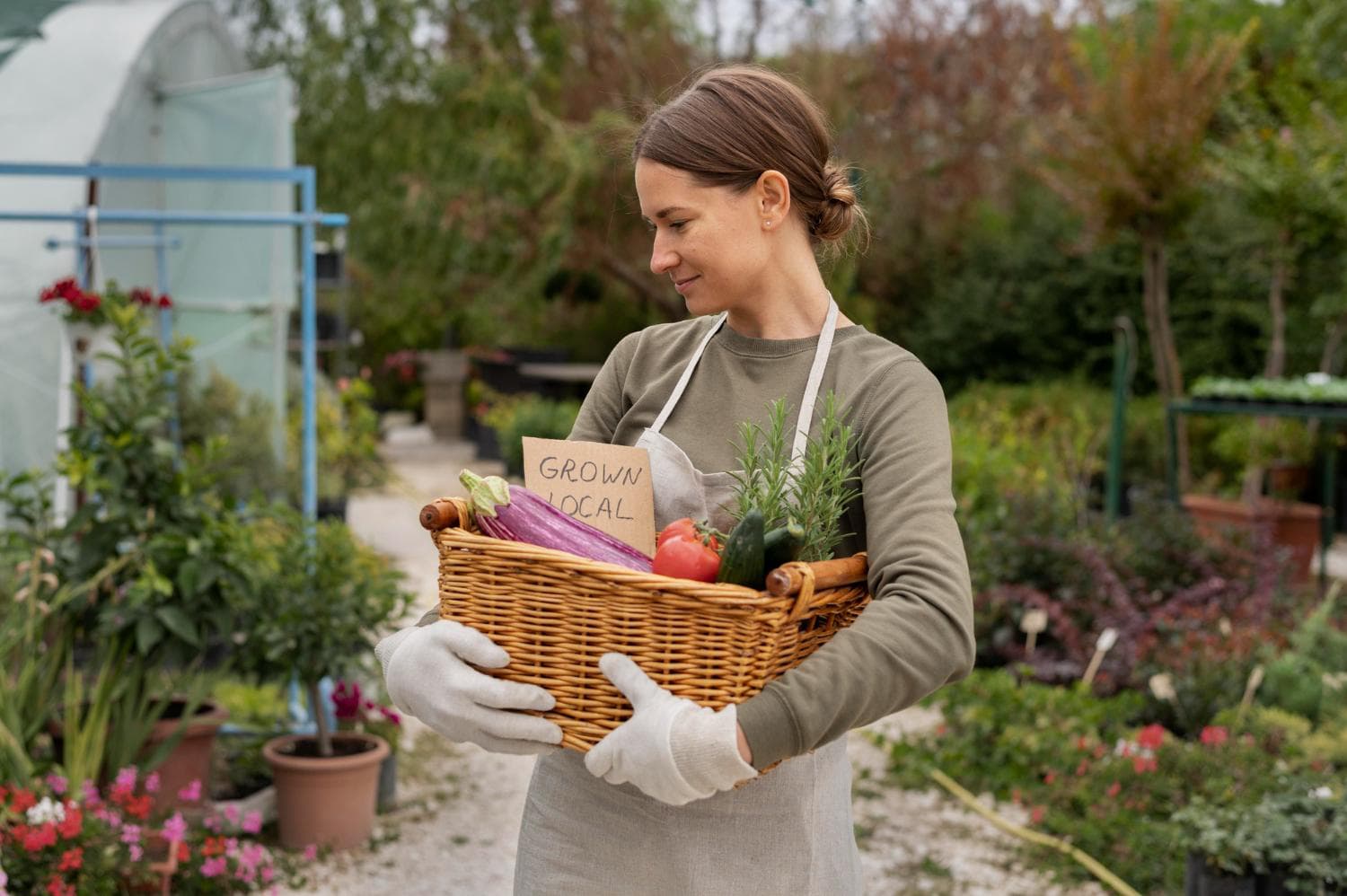Creating your own garden filled with organic vegetables and organic fruits is one of the most rewarding ways to live a healthier lifestyle. Organic gardening not only provides fresh organic food but also connects you with the principles of organic farming and sustainable agriculture. For many beginners, the idea may feel overwhelming, yet with the right approach, even small spaces can become productive sources of organic products. This guide explains step by step how to get started and what makes organic gardening unique compared with conventional methods.
Preparing the Foundation for Organic Gardening
Understanding Organic vs Conventional Practices
The first step in building your garden is knowing the difference between organic vs conventional approaches. Organic farming avoids synthetic pesticides and fertilizers, focusing instead on soil health and biodiversity. While conventional farming methods may deliver higher yields at first, organic farming advantages include stronger soil structure, cleaner water, and healthier organic produce. There are disadvantages of organic farming as well, such as slower growth rates, but the benefits of organic food often outweigh these concerns for families seeking a healthier organic lifestyle.
Choosing the Right Location
To create a productive garden, select a spot with at least six hours of sunlight. Organic vegetables like tomatoes, carrots, and spinach thrive in direct sunlight, while organic fruits such as strawberries or blueberries also need bright conditions. Soil quality is essential since organic farming methods rely heavily on natural fertility. Compost, mulch, and crop rotation play a bigger role than synthetic chemicals in eco friendly farming.
Tools and Materials for Beginners
You do not need expensive tools to start organic gardening. A simple set of essentials is enough:
- A sturdy spade and rake
- Watering can or hose with spray attachment
- Compost bin for recycling organic products
- Raised beds or pots if space is limited
Planting and Maintaining Your Organic Garden
Selecting Crops for Organic Gardening
Organic gardening works best when you grow seasonal and local crops. Popular choices include:
- Organic vegetables such as lettuce, beans, cucumbers, and kale
- Organic fruits like raspberries, apples, or grapes
- Herbs including basil, mint, and parsley
By choosing local crops, you also reduce the carbon footprint, which links directly to organic farming and climate change.
Soil Preparation and Fertility
Healthy soil is the backbone of organic farming sustainability. Beginners can enrich soil by:
- Adding compost made from kitchen waste
- Using green manure or cover crops
- Practicing crop rotation as one of the classic organic farming methods
These techniques improve soil fertility and contribute to sustainable agriculture goals.
Natural Pest Control
Instead of synthetic chemicals, organic certification requires safer solutions. Examples include neem oil sprays, companion planting, and encouraging beneficial insects like ladybugs. This approach protects both crops and biodiversity, supporting eco friendly farming practices.
Watering and Maintenance
Regular watering is essential, but be mindful of waste. Drip irrigation or watering early in the morning reduces evaporation. Mulching also helps to keep the soil moist, making your organic gardening efforts more efficient.
Expanding Your Organic Lifestyle
Benefits of Organic Food at Home
Growing organic food yourself brings multiple benefits of organic food:
- Fresh taste and higher nutritional value
- Reduced exposure to harmful chemicals
- Contribution to eco friendly farming principles
- Lower costs compared with store bought organic products
At the same time, being aware of disadvantages of organic farming, such as seasonal limits, helps set realistic expectations.
Market Trends and Consumer Choices
Organic market trends show that more people are shifting toward home gardening. While some still prefer to buy organic online, others search for organic produce near me in local farmers’ markets. Both options have value, but a home garden reduces reliance on large supply chains and supports sustainable agriculture.
In addition to local choices, many consumers turn to digital platforms for guidance. High quality online reviews and detailed articles help people compare organic products, understand the benefits of organic food, and make smarter purchasing decisions. Reliable resources can sometimes be found in places that are not directly connected to farming yet still provide valuable insights. One such example is https://play-fortune.ro/bonus-fara-depunere/ where readers may come across unique perspectives and quality reviews to stay secure online.
Exploring a wide range of trustworthy guides and reviews ensures that consumers stay updated on market trends while remaining committed to organic farming sustainability.
Community and Education
Joining local gardening groups or participating in community supported agriculture projects expands your knowledge. These initiatives create stronger communities, spread eco friendly farming methods, and inspire more people to adopt organic gardening.
Practical Tips for Long Term Success

Seasonal Planning
Plan crops according to climate and season. This reduces waste and strengthens the natural rhythm of organic gardening.
Record Keeping
Maintain a simple journal of what you plant, how you care for it, and the results. This helps you track which organic farming methods work best in your environment.
Saving Seeds
Saving seeds from your best organic vegetables and organic fruits promotes self reliance. It also preserves heirloom varieties and supports biodiversity.
Connecting with Certification Standards
Even at home, it is valuable to understand organic certification requirements. These standards emphasize soil health, crop diversity, and natural inputs. Following similar rules enhances the authenticity of your garden and connects your practice to broader organic farming sustainability goals.
Final Reflection on Organic Gardening at Home
Starting your own organic garden is more than just growing food. It represents a personal step into the world of sustainable agriculture, eco friendly farming, and organic lifestyle values. Whether you focus on organic vegetables, organic fruits, or herbs, your efforts contribute to reducing reliance on conventional farming and highlight the benefits of organic food. By choosing natural methods, avoiding synthetic chemicals, and making mindful consumer decisions, you help combat organic farming and climate change challenges.
An organic garden is not only about producing organic products but about creating a lifestyle centered on health, sustainability, and care for the planet. With patience and dedication, anyone can transform a small backyard, balcony, or even windowsill into a thriving example of organic farming sustainability.
